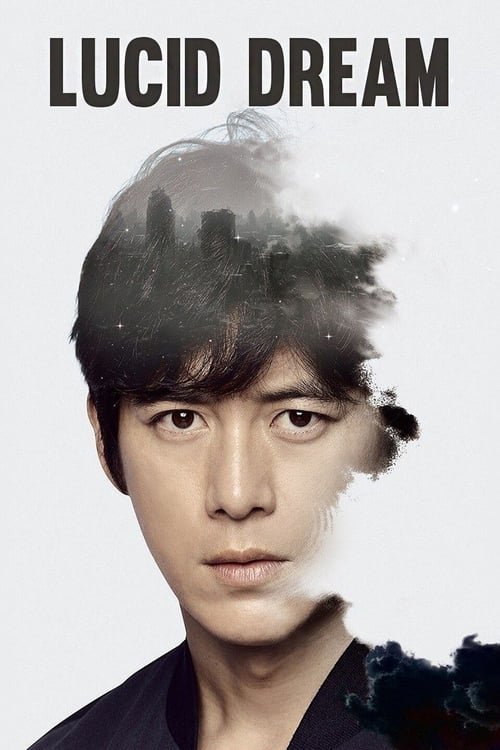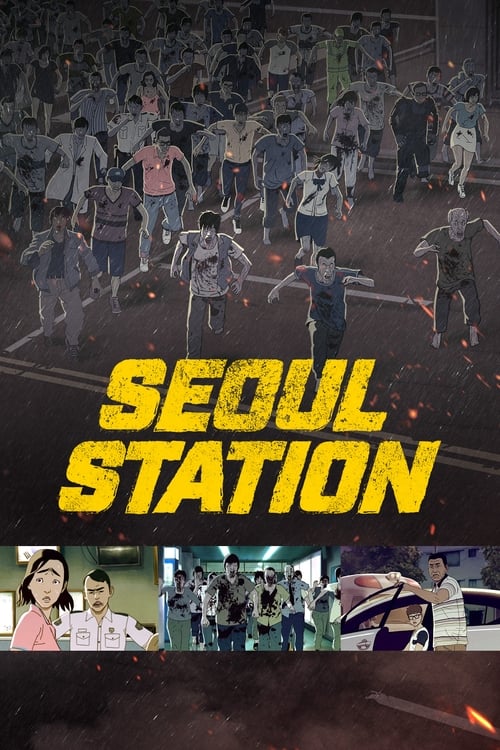
Ask Your Own Question
What is the plot?
Sorry, we aren't able to watch and write up a full detailed plot yet. Check back in a few days.
More Movies Like This
Browse All Movies →What is the ending?
In the ending of "Lucid Dream," the protagonist, Dong-woo, successfully uses lucid dreaming techniques to confront the kidnapper of his son. He navigates through his dreams to find the truth, ultimately leading to a confrontation that reveals the identity of the kidnapper. The film concludes with Dong-woo reclaiming his sense of hope and closure regarding his son's fate.
As the film approaches its climax, Dong-woo, a determined father, finds himself deep within the layers of his own dreams. He has been tirelessly searching for his son, who was kidnapped years ago. The emotional weight of his journey is palpable; he is driven by desperation and a fierce love for his child.
In the dream world, Dong-woo encounters various manifestations of his fears and memories. Each dream sequence is visually striking, filled with surreal imagery that reflects his inner turmoil. He meets with a dream guide, who helps him navigate the complexities of his subconscious. This guide serves as a beacon of hope, encouraging Dong-woo to confront the painful memories that have haunted him since his son's disappearance.
As he delves deeper into his dreams, Dong-woo begins to piece together clues about the identity of the kidnapper. The tension builds as he faces off against the shadowy figure who has been tormenting him. The confrontation is intense, filled with emotional stakes as Dong-woo grapples with his anger, fear, and longing for his son.
In a pivotal moment, Dong-woo confronts the kidnapper, who is revealed to be a figure from his past. This revelation is shocking and serves as a culmination of Dong-woo's emotional journey. The dreamscape around them shifts, reflecting the chaos of Dong-woo's mind as he struggles to come to terms with the truth.
As the confrontation reaches its peak, Dong-woo's determination shines through. He fights not just for his son but for his own peace of mind. The dream world begins to collapse around them, symbolizing the fragility of his memories and the weight of his grief. In a final act of courage, Dong-woo manages to overpower the kidnapper, reclaiming his agency in both the dream and his waking life.
The film concludes with Dong-woo waking up, a sense of relief washing over him. He has faced his fears and uncovered the truth about his son's fate. The emotional burden he has carried for so long begins to lift, suggesting a path toward healing.
In the final scenes, Dong-woo is shown in a more hopeful light, indicating that while the pain of loss may never fully disappear, he has found a way to move forward. The fate of the kidnapper remains ambiguous, but Dong-woo's journey signifies a personal victory over his past.
The ending encapsulates the themes of love, loss, and the power of confronting one's fears. Dong-woo emerges not just as a father seeking his son, but as a man who has faced the darkest corners of his mind and emerged stronger.
Is there a post-credit scene?
In the movie "Lucid Dream," there is no post-credit scene. The film concludes its narrative without any additional scenes or content after the credits roll. The story wraps up with the main character, Dong-woo, having navigated through his dreams to uncover the truth about his son's kidnapping, ultimately leading to a resolution of his emotional journey. The absence of a post-credit scene emphasizes the closure of his quest and the themes of loss and redemption that permeate the film.
What motivates the main character, Dong-woo, to enter the lucid dream state?
Dong-woo is driven by the desperate need to find his missing son, who was abducted. His emotional turmoil and guilt over his inability to protect his child propel him into the world of lucid dreaming, where he hopes to uncover clues about his son's whereabouts.
How does Dong-woo's ability to control his dreams affect his journey?
As Dong-woo learns to manipulate his dreams, he gains the power to confront his fears and relive memories. This control allows him to explore different scenarios and gather information about his son's kidnapping, but it also leads to emotional confrontations with his past and the trauma of his loss.
What role does the character of the detective play in Dong-woo's quest?
The detective serves as a crucial ally for Dong-woo, providing him with insights and support as he navigates the complexities of his dream world. The detective's skepticism and eventual belief in Dong-woo's abilities highlight the tension between reality and the dream state.
What are the consequences of Dong-woo's actions within the lucid dream?
Dong-woo's actions in the lucid dream have significant repercussions, as they not only affect his mental state but also alter the course of his investigation. His choices lead to unexpected revelations and confrontations with the antagonist, ultimately impacting his quest to rescue his son.
How does the film depict the concept of memory and its impact on the characters?
The film intricately weaves memory into its narrative, showcasing how Dong-woo's recollections of his son and the events surrounding the abduction shape his emotional landscape. Memories manifest in the dream world, influencing his decisions and revealing deeper truths about his relationships and regrets.
Is this family friendly?
"Lucid Dream," produced in 2017, is a psychological thriller that delves into themes of abduction, trauma, and the complexities of the subconscious mind. While the film explores intriguing concepts, it contains several elements that may not be suitable for children or sensitive viewers.
-
Abduction and Violence: The central plot revolves around a child's abduction, which can be distressing for younger audiences. There are scenes that depict the emotional turmoil of the parent, which may evoke feelings of fear and anxiety.
-
Psychological Distress: The protagonist experiences significant emotional pain and psychological struggles as he navigates his dreams to find his son. This portrayal of grief and desperation may be unsettling.
-
Nightmare Sequences: The film includes dream sequences that can be intense and surreal, featuring disturbing imagery that may be frightening for some viewers.
-
Themes of Loss and Trauma: The exploration of loss, particularly the impact of a missing child on a family, is a recurring theme that could be upsetting for sensitive individuals.
-
Mature Themes: The film touches on adult themes such as obsession and the lengths one might go to in order to confront their fears, which may not be appropriate for younger audiences.
Overall, while "Lucid Dream" offers a thought-provoking narrative, its darker themes and intense emotional content may not be suitable for children or those who are sensitive to such topics.































